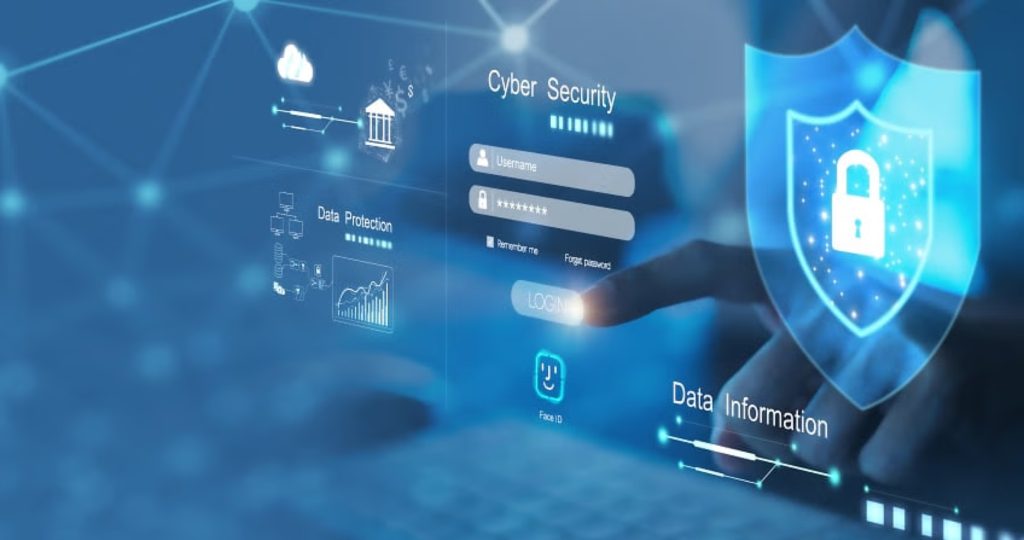
Network security has become one of the most critical aspects of our increasingly digital lives. As more of our personal and business activities shift to the online world, the need for robust network security measures has never been more essential. With the growing threat of cyberattacks, data breaches, and other malicious activities, safeguarding digital information has become a top priority for individuals and organizations alike. This article explores the evolution of network security, the various technologies used to protect digital assets, and the importance of maintaining privacy in today’s interconnected world.
1. Understanding Network Security
- Network security refers to the practices and tools used to protect networks, devices, and data from unauthorized access, cyberattacks, and data theft. A strong network security strategy ensures that sensitive information is kept safe from hackers, cybercriminals, and other malicious actors. It involves the implementation of firewalls, encryption techniques, and authentication protocols to monitor, detect, and respond to potential security threats.
- With the increase in online activities, businesses and individuals need to be aware of the evolving network security threats that could compromise personal and sensitive data. As cybercriminals continue to use more advanced techniques, traditional network security methods are no longer sufficient. This has led to the development of more sophisticated solutions, including artificial intelligence (AI) and machine learning, to predict and prevent cyberattacks before they occur.
2. The Evolution of Network Security Technologies
- Over the past few decades, network security has evolved dramatically. In the early days of the internet, simple firewalls and antivirus software were enough to protect most systems. However, as online threats became more sophisticated, so too did the technologies designed to combat them.
2.1. Firewalls and Intrusion Detection Systems (IDS)
- Firewalls are one of the most fundamental components of network security. A firewall is a security system that monitors and controls incoming and outgoing network traffic based on predefined security rules. It acts as a barrier between a trusted internal network and untrusted external networks like the internet.
- In addition to firewalls, Intrusion Detection Systems (IDS) are widely used to monitor network security. These systems analyze network traffic for suspicious activity and potential security breaches. When a threat is detected, IDS sends alerts to system administrators so that they can take immediate action to mitigate the risk.
2.2. Encryption and Secure Communication
- Another important aspect of network security is encryption. Encryption is the process of converting data into a code to prevent unauthorized access. Whether it’s protecting sensitive data transmitted across the internet or ensuring the confidentiality of stored information, encryption is a fundamental technology for safeguarding.
- Secure communication protocols, such as SSL/TLS, are also used to encrypt data transferred between websites and users. These protocols are particularly crucial in e-commerce, where sensitive information like credit card details must be kept secure during transactions.
2.3. AI and Machine Learning in Network Security
- With the rise of artificial intelligence (AI) and machine learning, has taken a significant leap forward. AI and machine learning algorithms are now used to detect patterns in network traffic and predict potential security threats before they occur. These technologies are able to identify anomalies and vulnerabilities that would be difficult or impossible for humans to detect manually.
- Machine learning models are used to analyze vast amounts of network data in real-time, helping to identify and block malicious activity. This proactive approach to network security ensures that systems are better prepared to handle sophisticated cyberattacks such as zero-day vulnerabilities, ransomware, and phishing.
3. Network Security Protecting Privacy in the Digital Age
- In the digital age, privacy protection is more important than ever. As individuals and businesses generate more data online, the risk of this data being compromised or misused increases. Network security plays a crucial role in safeguarding personal privacy and protecting sensitive information.
3.1. Data Encryption for Privacy Protection
- One of the most effective ways to protect privacy online is through data encryption. By encrypting data, organizations ensure that even if a cybercriminal gains access to the network, they cannot read or use the information. Encryption is particularly vital for protecting sensitive personal data, such as social security numbers, medical records, and financial information.
3.2. Privacy by Design
- To address privacy concerns, many organizations are adopting the concept of Privacy by Design. This concept involves integrating privacy protection measures into the design of systems and networks from the very beginning, rather than as an afterthought. Privacy by Design ensures that user data is protected throughout its lifecycle and that organizations comply with privacy regulations such as the General Data Protection Regulation (GDPR).
3.3. Secure Authentication Methods
- Another important aspect of privacy protection is secure authentication. Strong authentication methods, such as multi-factor authentication (MFA), ensure that only authorized users can access sensitive information. MFA requires users to provide multiple forms of verification, such as a password, fingerprint, or one-time passcode, making it more difficult for unauthorized users to gain access.
4. The Role of Network Security in Business Operations
- For businesses, just about protecting data; it is also about ensuring operational continuity and maintaining trust with customers. A network security breach can result in severe financial and reputational damage. For example, a data breach can lead to legal liabilities, loss of customer trust, and significant financial penalties.
- Therefore, investing in network security solutions is crucial for businesses to maintain their competitive edge in an increasingly digital economy. By implementing a comprehensive strategy, businesses can protect sensitive data, ensure operational continuity, and create a safe environment for their customers and employees.
5. The Future of Network Security
- As technology continues to evolve, network security will also continue to adapt to meet new challenges. The future of network security will likely involve a greater emphasis on zero-trust architectures, where access to sensitive data is granted based on strict authentication and authorization protocols. This approach assumes that every user and device within the network could be compromised and requires verification before granting access.
- Additionally, as businesses increasingly adopt cloud computing and the Internet of Things (IoT), new security measures will be required to protect data in these environments. Cloud security solutions will need to evolve to protect the vast amounts of data stored and transmitted across cloud networks, while IoT devices will need enhanced security protocols to prevent them from being exploited by cybercriminals.
6. Conclusion: The Ongoing Importance of Network Security
- As we continue to embrace the digital world, will remain one of the most important concerns for individuals and organizations alike. The evolution of network security technologies and practices will continue to play a critical role in ensuring that personal and business data are protected from cyber threats.
- With the increasing complexity of cyberattacks and the growing dependence on digital infrastructure, maintaining a robust network security strategy is more important than ever. By staying ahead of emerging threats, adopting the latest security technologies, and implementing strong privacy protection measures, we can ensure that our digital lives remain safe and secure.


